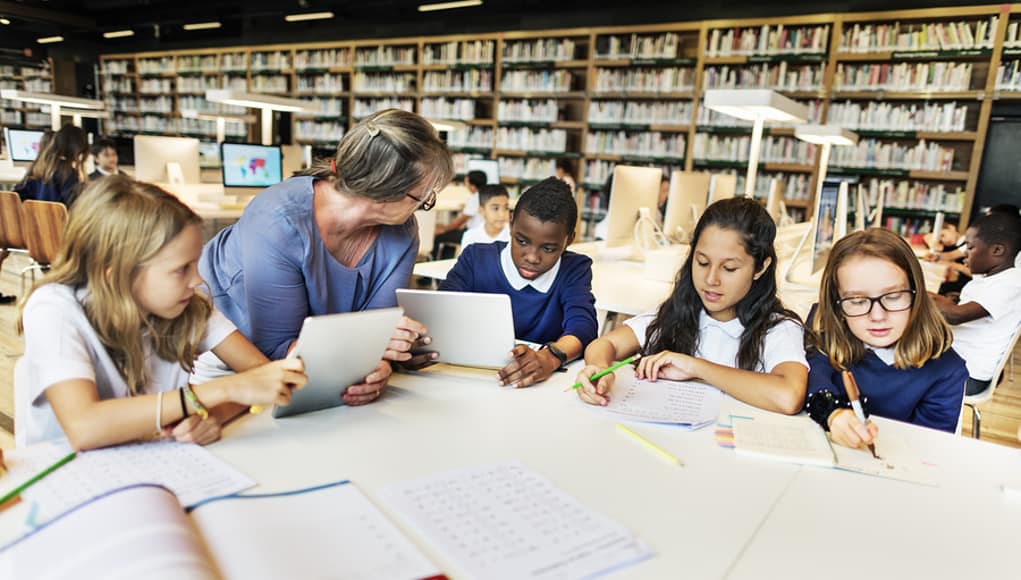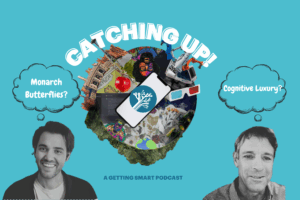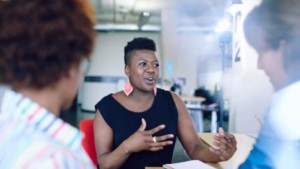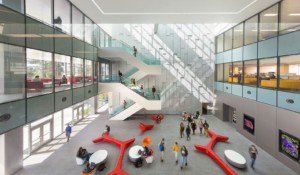Teachers Taking Leadership to Drive Positive Change

Sometimes our assumptions limit what we imagine is possible. For example, we assume innovation only happens in organizations that have access to plenty of resources or that leadership is reserved for someone in a position of power. These ideas―or what Carol Dweck would call a fixed mindset―limit growth and potential. This is especially dangerous in education, where limited opportunities can have compounding effects.
So, we wanted to share a bright spot from our work this past school year. Along the way, we have both replaced some of our assumptions. We have developed healthier working definitions informed by our exposure to new ideas and surprising success stories. From these experiences, we’ve learned that innovation, leadership and growth can happen anywhere.

One of us, Priscilla, teaches 7th grade science at Apollo Middle School in Sunnyside School District. The other, Carly, works for LeadLocal, a “think, learn and do”-tank based in Tucson, AZ. This year our organizations have collaborated (formally and informally) to support leadership and authentic learning opportunities at Apollo.
“We’ve learned that innovation, leadership and growth can happen anywhere”
Apollo Middle School is a rough gem. Many associate the school with a bad reputation that involves gang activity and reckless student behavior. But this year, Apollo has truly seen a significant shift in leadership that is leading to fundamental changes in the day-to-day student experience: teachers want to see change, and they are making it happen instead of waiting for it. We have teamed up and found ways to come together to not only support the students but each other. Apollo administrators have empowered teachers by giving them a voice and listening to their concerns.

The leadership and support provided by the Apollo admin team allowed Priscilla, and fellow teacher Katie Montgomery, to start a student-run business, Aqua Cents. In Priscilla and Katie’s classes, students are learning how to make products, how to market, how to sell in-person, how to use credit card readers, and a whole host of life skills that they wouldn’t have learned in the traditional science classroom. Plus, Aqua Cents isn’t just an opportunity to develop entrepreneurial skills. It is the mechanism to finance the creation of Apollo’s Secret Garden, an aquaponic pond system that will provide herbs and plants for future products, and will double as an outdoor classroom.
This is just one way Apollo is bringing innovation into the classroom learning. There’s also a community garden, a wellness center, a demonstration kitchen, and robust after-school offerings. However, these opportunities aren’t available simply because Apollo has a beautiful new campus situated in a wealthy community. These opportunities happen through strong community partnerships. For example, seed funding for Aqua Cents came from Real World Scholars, and Apollo’s community garden is a partnership with the Canyon Ranch Institute (remember, partnerships aren’t simply donations, as we often assume).
 When Carly visited Priscilla’s classroom last fall, Priscilla had used CommunityShare to connect with Lee Pagni, an ecologist who taught her students about endangered iguanas. Aqua Cents’ product lines are named after endangered species the students have researched. These types of rich interactions inspire students and teachers, helping them connect with the world beyond the classroom walls and giving them the confidence and curiosity to learn more.
When Carly visited Priscilla’s classroom last fall, Priscilla had used CommunityShare to connect with Lee Pagni, an ecologist who taught her students about endangered iguanas. Aqua Cents’ product lines are named after endangered species the students have researched. These types of rich interactions inspire students and teachers, helping them connect with the world beyond the classroom walls and giving them the confidence and curiosity to learn more.
What we find really inspiring, though, is that innovation and leadership aren’t just happening for Apollo students―teachers are taking leadership roles in the school. Two teachers recently attended an Off Script Retreat hosted by LeadLocal. At Off Script, the teachers developed a step-by-step peer training model to encourage growth mindset among their peers. The Monday following the retreat, the team pitched the idea to the principal and was able to move forward with the initiative.
Apollo has many passionate, creative teachers that are helping students and each other achieve new heights in their learning and leadership. In the coming years, Apollo teachers hope to expand outdoor classroom areas, increase real-world learning opportunities, and develop a maker-space.

Apollo Middle School is a place of learning and growth. The change that Apollo has experienced over the last few years is enough to change any conventional assumptions about where leadership and innovation happen. What we want to emphasize is that it is the growth mindset, collaboration, and willingness to work hard that has allowed innovation to take root. Apollo is an example of how you can work with the resources you have to create the world you imagine.
So how do we in education prevent ourselves from adopting a limited view of what leadership and innovation can mean and where it can happen? For us, it starts with listening and asking questions. Ask people―students, teachers, parents, principals―what they need. Ask them to share their stories and experiences. This helps to cultivate a growth mindset by seeing different perspectives. It opens the door for the dialogue and inclusivity necessary for effective leadership and collaboration. We know from experience that the answer seems simple―it’s the work that’s hard. Keep up the good fight!
For more, see:
- Innovation, Empowerment & Positive Change in San Diego Schools
- See Through a Student’s Eyes with the Shadow A Student Challenge
- Professional Learning: The Power of School Visits
Priscilla Fischback is a 7th grade science teacher at Apollo Middle School. Follow them on Twitter: @sunnysideusd
Carly Croman is the Director of Engagement at LeadLocal, a Think, Learn and Do Tank in Tucson, Arizona. Follow them on Twitter: @goleadlocal
Stay in-the-know with all things EdTech and innovations in learning by signing up to receive the weekly Smart Update.






0 Comments
Leave a Comment
Your email address will not be published. All fields are required.